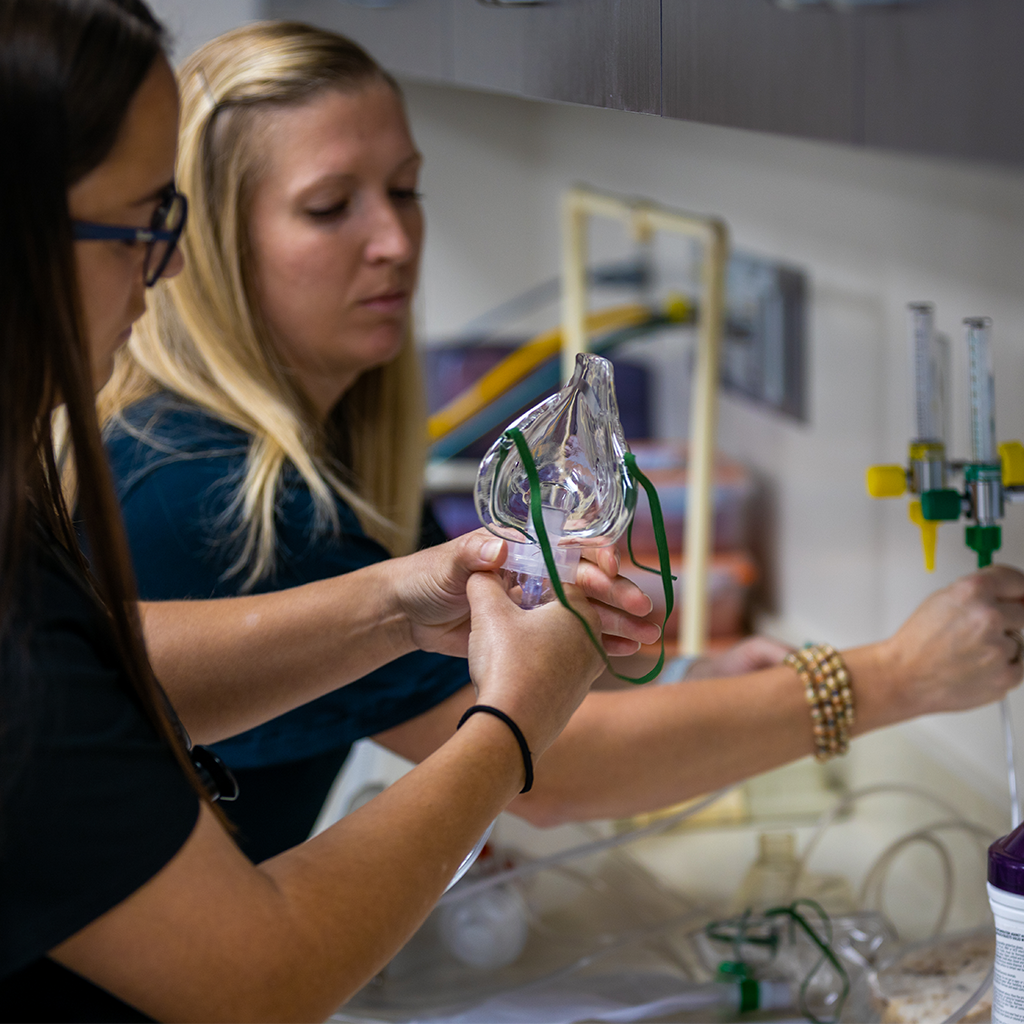
CoARC granted approval of intent on 12/17/21. Final accreditation pending
The Respiratory Therapy (RT) program has a selective entrance policy. Application to the program is made separately from application for admission to Missouri Western. Applicants must meet the following minimum requirements:
- The applicant must have a minimum overall cumulative GPA of 2.5 (Contact Program Director if GPA is below a 2.5 and interested in becoming a respiratory therapist).
- The TEAS test, better known as the “Test of Essential Academic Skills,” is an entry-level exam which measures the current aptitude level of an individual seeking entry into the field of Health Sciences. The Respiratory Therapy program strongly encourages you to take this test in order to determine if you would have a high likelihood of academic success as indicated by a test result of 58.7% or above. The program may use the TEAS results when selecting students for admission; taking the TEAS could be advantageous in the selection process especially if other required criteria is absent.
- TEAS sign up: https://www.missouriwestern.edu/mwsu-testing-centers/ati-teas/
- Test results must have occurred within the past three years from the date of application to be valid and counted as part of your application materials.
- The applicant must have completed or currently enrolled in all general studies and respiratory therapy support courses (and earn a grade of C or higher in each support class, as well as MAT 110 Contemporary Problem Solving, MAT 110E Contemporary Problem Solving, MAT 112 Finite Mathematics, or MAT 116 College Algebra). (Contact Program Director if lacking one of the required support courses.)
- The review of applications includes assessment of resume, letter of intent and personal statement and unofficial transcripts. Deadlines for applications for preferred admittance is May 15th. (Acceptance of applications after May 15th will occur until cohort is full or until one week prior to beginning of semester.)
